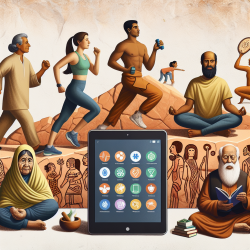The landscape of global health is evolving rapidly, with new models emerging that emphasize collaboration and shared knowledge. One such model is the RAHI-SATHI Indo-U.S. collaboration, which has pioneered a trainee-led approach to global health partnerships. This innovative model not only bridges geographical and cultural gaps but also empowers trainees to take on leadership roles in multidisciplinary programs.
The RAHI-SATHI Model: A New Approach to Global Health
The RAHI-SATHI program represents a shift from traditional faculty-driven global health initiatives to a more inclusive trainee-led model. This approach leverages the energy and flexibility of trainees to drive research and advocacy efforts in global health.
The program's success lies in its ability to overcome common barriers in global health collaborations:
- Cultural Insight: Trainees immerse themselves in local communities, gaining valuable cultural insights that enhance the effectiveness of their work.
- Geographical Bridges: Acting as liaisons between institutions, trainees help mitigate geographical barriers that often hinder international collaborations.
- Structured Mentorship: With strategic support from faculty mentors, trainees develop essential leadership and research skills that benefit their future careers.
Implementing the Trainee-Led Model in Your Practice
If you're a practitioner looking to enhance your skills or explore new avenues in global health, consider adopting elements of the trainee-led model:
- Expand Trainee Roles: Encourage an expanded role for trainees within your organization by involving them in decision-making processes and project leadership.
- Create Structured Opportunities: Develop structured research and program opportunities that allow trainees to engage meaningfully with global health issues.
- Build Networks: Foster a network of faculty and trainees interested in global health to facilitate knowledge exchange and collaborative efforts.
- Share Funding Opportunities: Provide access to extramural funding opportunities to enable trainees to pursue innovative projects.
- Offer Seed Funding: Support promising projects with seed funding to encourage innovation and sustainability within your organization.
The Impact of Trainee-Led Initiatives
Trainee-led initiatives like RAHI-SATHI have demonstrated significant impacts on both local communities and the trainees themselves. By positioning trainees at the forefront of research activities, these programs cultivate trust among team members and foster personal growth among participants. This model not only enhances the capacity for conducting foundational work but also ensures sustainability in an uncertain funding climate.
The Road Ahead: Encouraging Further Research
The success of the RAHI-SATHI collaboration highlights the potential for trainee-led models to transform global health partnerships. Practitioners are encouraged to delve deeper into this research area and explore how similar approaches can be adapted to their contexts. By embracing these innovative models, we can collectively advance global health initiatives and create lasting change.
If you're interested in learning more about the RAHI-SATHI model and its outcomes, I encourage you to read the original research paper: RAHI–SATHI Indo-U.S. Collaboration: The Evolution of a Trainee-Led Twinning Model in Global Health Into a Multidisciplinary Collaborative Program.










